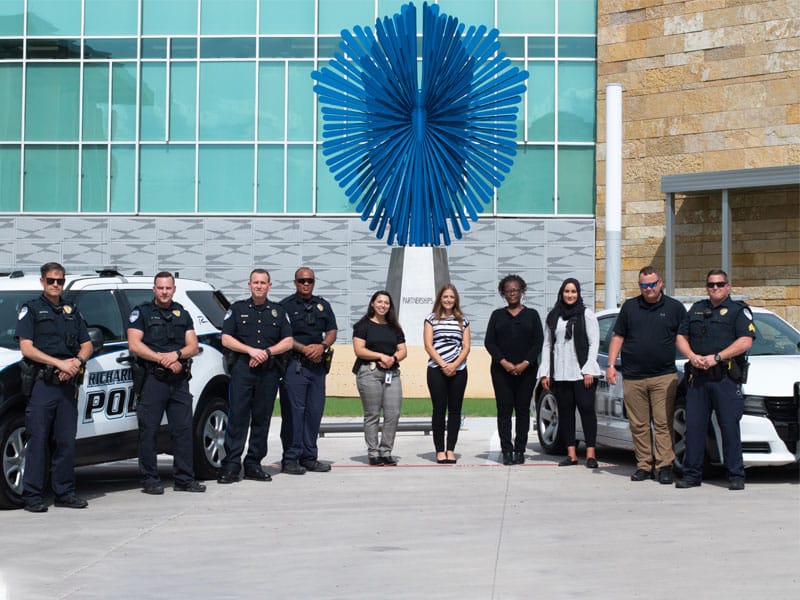When Richardson police reached out to senior leadership at Methodist Richardson Medical Center about a possible collaboration, everyone was intrigued.
“Mental health is a top priority for law enforcement agencies across the country, including right here in Richardson,” says Police Chief Gary Tittle of the Richardson Police Department. “The time was right to approach Methodist and see if we could come together to form a team aimed at addressing local mental health concerns.”
Tens of millions of people are affected by mental illness each year, according to the National Institute of Mental Health, and estimates suggest only half of them are receiving treatment.
As a result, the number of mental health-related 911 calls has put an increasing strain on police resources.
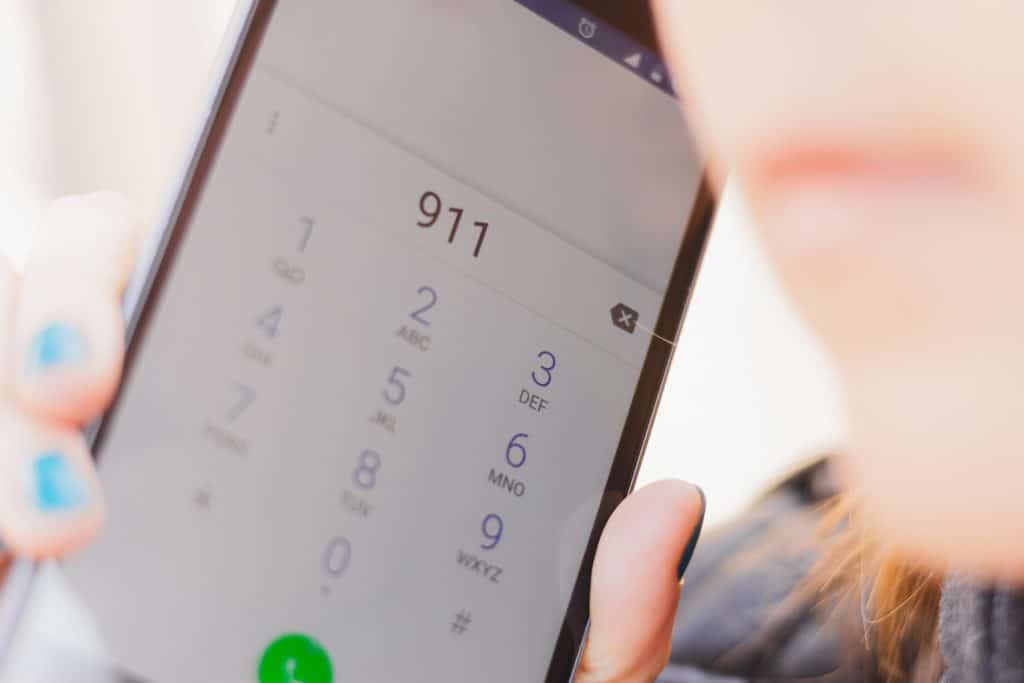
“We are utilizing our uniformed patrol officer resources to answer these calls,” Chief Tittle says, “and we are often receiving repeated calls for the same individual experiencing a repeating mental health crisis.”
In collaborating with Methodist Richardson, Chief Tittle hopes to redirect those people in crisis to mental health professionals and reduce their reliance on law enforcement.
The chief has found a ready and willing partner at Methodist Richardson.
“We knew we had the resources in our community to make a difference,” says Methodist Richardson President Ken Hutchenrider, FACHE. “We’re hoping this collaboration between Richardson police and Methodist Richardson can be a model for other agencies.”
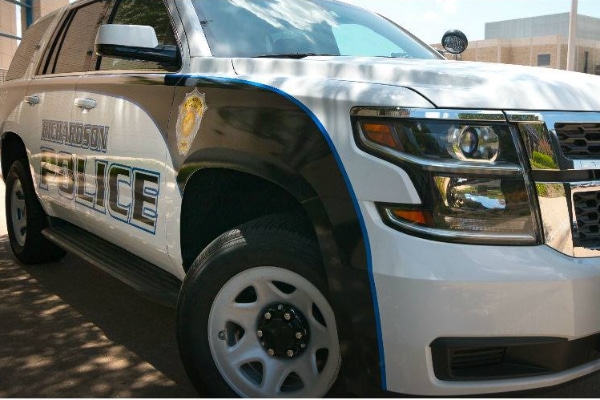
HOW IT WORKS
After months of hard work and planning, along with financial support from the Methodist Richardson Medical Center Foundation, the Crisis Intervention Team (CIT) became a reality in October 2020.
“We were in a unique position to offer our resources and work alongside our local law enforcement to build a partnership from the ground up,” says Lauren Wetzel, intake manager for behavioral health and addiction recovery at Methodist Richardson.
The crisis team consists of two full-time behavioral health employees — a registered nurse and a licensed clinical social worker — 16 police officers, and two sergeants.
In order to become a part of the team, officers must complete 40 hours of state-approved training. The Methodist CIT members also undergo training to learn more about the criminal justice side. Lauren describes the team’s MO as a “multi-step, collaborative approach.”
“On the front end, when Richardson police receive a call for service, their first goal is to de-escalate the situation,” Lauren says. “If necessary, the officers can call into a 24-hour hotline for immediate advice from one of our mental health professionals.”
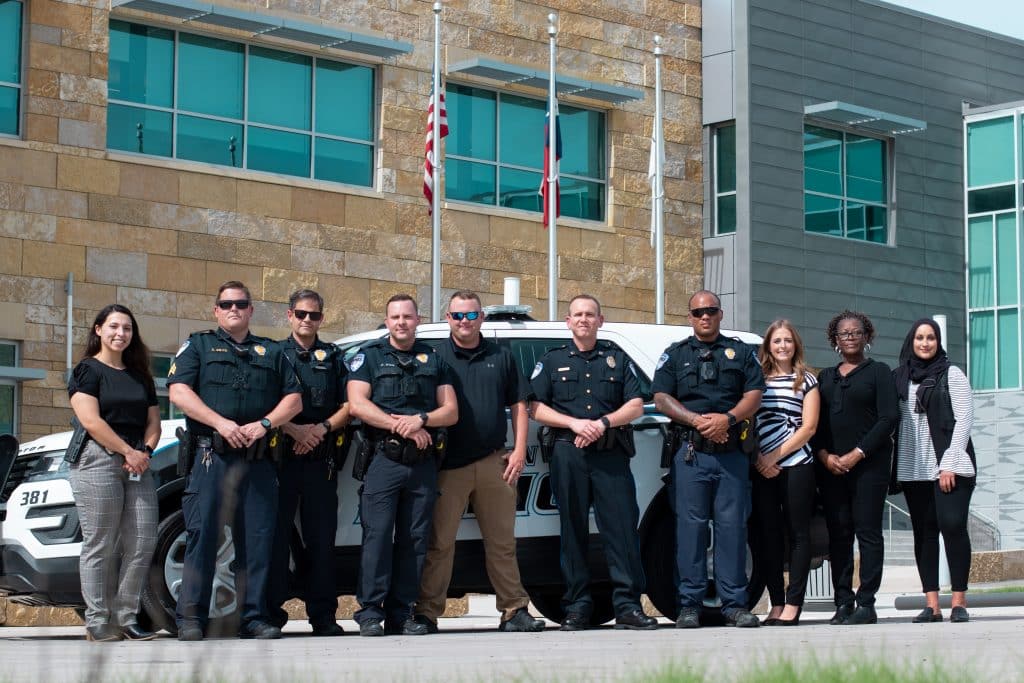
BEHIND THE SCENES
From there, the behind-the-scenes work begins. The responding officer creates a report, and it’s uniquely flagged for review by a CIT supervisor who will then assign the follow-up casework to one of the CIT members at the Richardson Police Department.
“This is where Methodist Richardson comes back into the picture,” Lauren says. “One of our CIT members will ‘triage’ the situation with the police officer and formulate a ‘next steps’ plan.”
That next step will often involve a joint visit by a CIT officer, a Methodist social worker, and a registered nurse to seek more information or medical history from the subject of the call or that person’s immediate family member who may have made the 911 call.
“With this information, we will put together a comprehensive plan that could include educating everyone in the home about mental illness, fostering healthy coping skills, and providing a menu of resources to connect these individuals with the services and providers they need,” explains Lauren.
Additionally, anyone’s name flagged by officers as possibly needing mental health services will be shared with the CIT members at Methodist for outreach efforts.
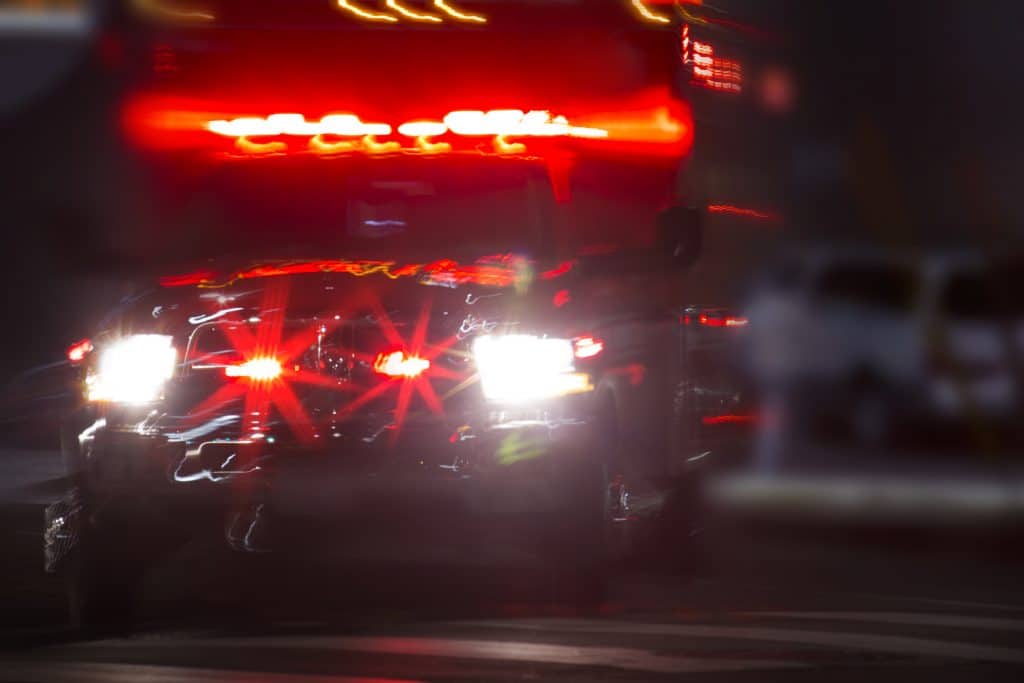
LOOKING AHEAD
Everyone involved in the CIT has expressed a commitment to continuing to fine-tune the current processes. Already, those involved have seen a greater awareness around mental illness in the community.
“This collaboration will lead to a number of improvements,” says Pavan Pamadurthi, MD, medical director of outpatient behavioral health services at Methodist Richardson.
In addition to improving awareness, Dr. Pamadurthi cited better training for local law enforcement and the integration of community-based mental health resources.
In looking to the future, crisis team members hope this partnership will grow in size and scope.
“Ultimately, we want to see more support and understanding of mental health needs,” Lauren says. “This program could spearhead that effort.”

